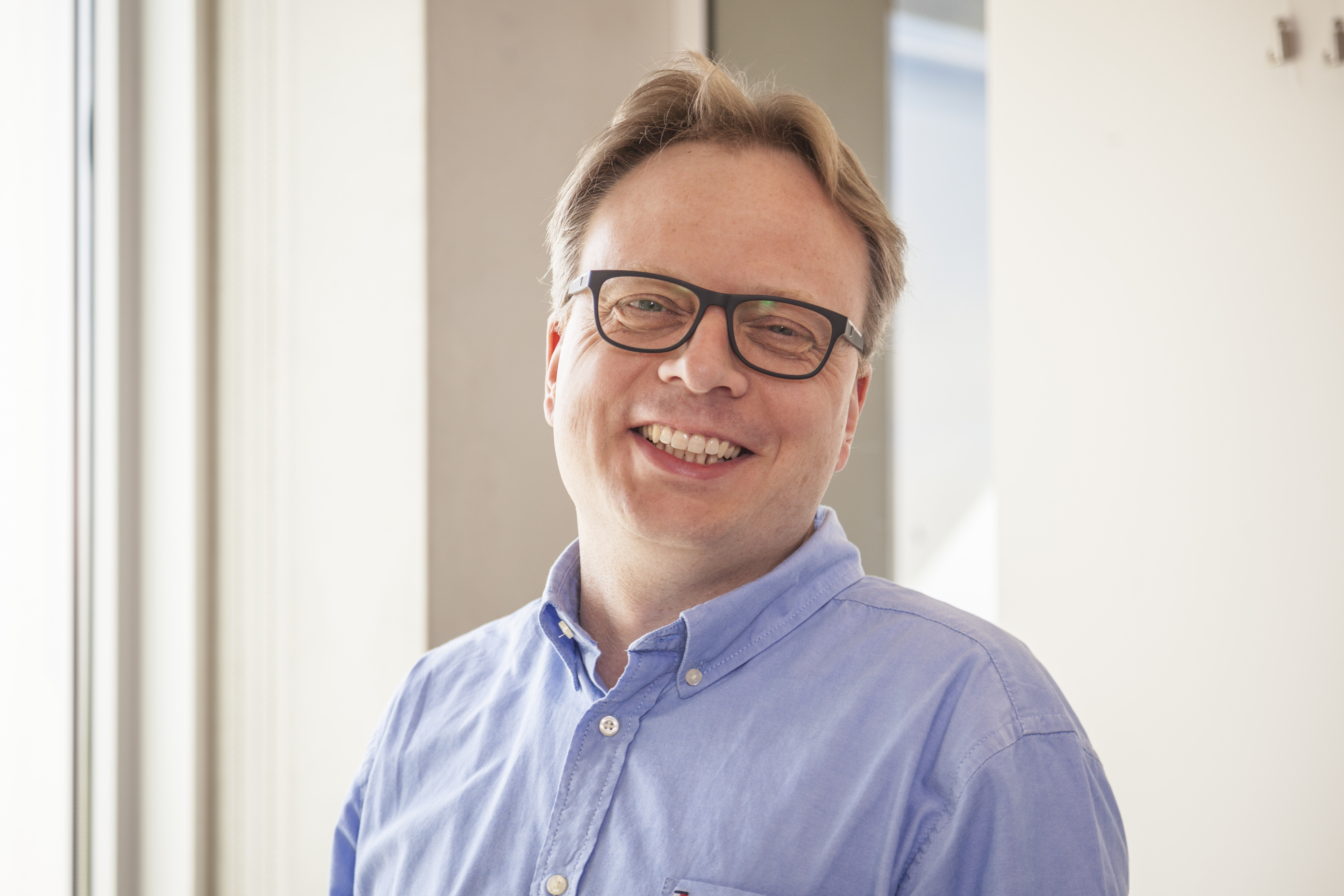Ferdinand Grozema: "Knowing why you learn something works"
In his courses, Teacher of the Year Ferdinand Grozema (MST/CE) tries to offer as many tools for science as possible. "I'll show you what you can achieve with a basic knowledge in chemistry." He is also the founder of the course 'Scientific Writing and Argumentation'. "Because having the right facts does not yet make a text clear or readable.”
Ferdinand is pleased with the award. "We usually get compliments for research, while we also spend a lot of time on education. I also think education is a nice aspect of the work, so it's good to hear that it's appreciated. I want to convey to the students how much fun chemistry is to generate enthusiasm. I always try to make contact, even in large groups. If I just deliver my story, they might as well watch YouTube. Of course, you never get 100% of the audience involved, but in general I see good, motivated and hardworking students."
Methods as a means to an end
Among other things, Ferdinand teaches the basic course numerical mathematics. "You need math, but math only makes me happy when it comes to chemistry. So I give many examples from practice and, where possible, practical assignments. I also turn it around sometimes: then I first demonstrate what a certain computer program can teach you about molecules. You then see the method, mathematics and programming, in action in the computer simulation. After that, it is easier for students to get to know the underlying theory. Mathematics and programming are not an end in themselves, they are tools. It motivates students when they see the added value of what they need to learn."
Writing good reports and articles
According to Ferdinand, good writing is just as essential a skill. "In many graduation reports there is a lack of scientific reasoning structure and readability. I want to help students with that. Partly because of the cleverness and technique of the text: in what ways can you build a text, what fits the target group, how do you connect paragraphs with each other? It's also about arguing the content: when is something true, and what are the good and bad arguments to substantiate this. I teach students what to look out for in scientific articles, which is more specific than general writing skills. Students indicate that they find writing a good text a challenge, but that they now have something to hold on to. It is my experience that anyone can learn this if they devote time and attention to it!"
***
Also read the interviews with Pascale Daran, Martin Bruggink and Gary Steele.
